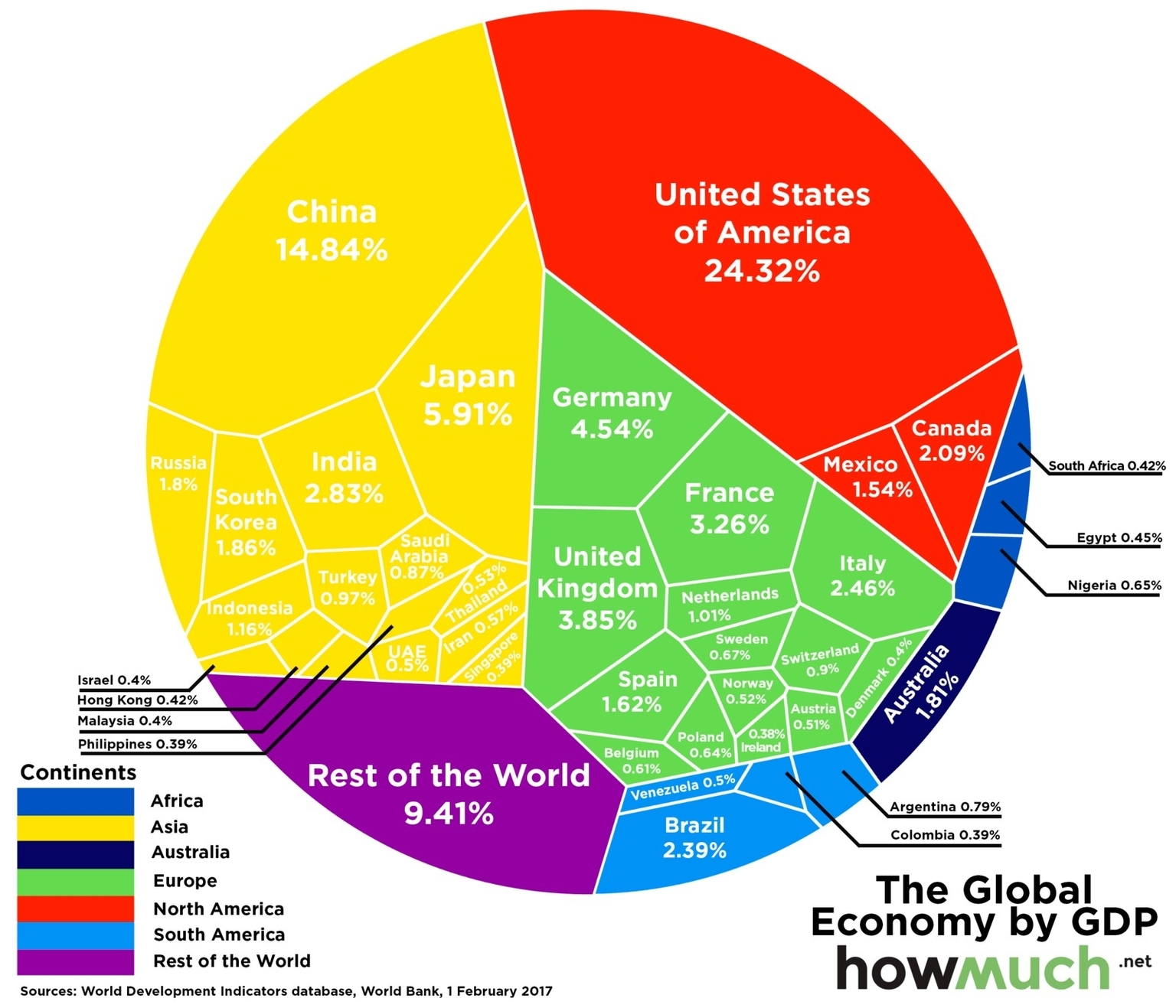
The global economy is a complex system that involves the production, distribution, and consumption of goods and services across the world. According to the World Bank, the global economy had a nominal GDP of $74 trillion in 2019 . The United States, China, and Japan are the top three countries with the highest nominal GDP, accounting for 24.3%, 14.8%, and 5.9% of the global economy, respectively .
The global economy is a constantly evolving system that is influenced by various factors such as technological advancements, political events, and natural disasters. The COVID-19 pandemic, for instance, has had a significant impact on the global economy, causing a decline in economic activity and a rise in unemployment rates .
The global economy can be divided into various sectors such as agriculture, manufacturing, and services. The service sector is the largest sector of the global economy, accounting for 63% of the global GDP in 2020 . The manufacturing sector is the second-largest sector, accounting for 25% of the global GDP in 2020 . The agricultural sector is the smallest sector, accounting for 2.5% of the global GDP in 2020 .
The global economy is also characterized by economic inequality, with some countries having a higher GDP per capita than others. The GDP per capita is a measure of the average economic output per person in a country. In 2020, the country with the highest GDP per capita was Qatar, with a GDP per capita of $59,330 . The country with the lowest GDP per capita was Burundi, with a GDP per capita of $261 .
In conclusion, the global economy is a vast and complex system that is influenced by various factors. The nominal GDP of the global economy was $74 trillion in 2019, with the United States, China, and Japan being the top three countries with the highest nominal GDP. The service sector is the largest sector of the global economy, accounting for 63% of the global GDP in 202
